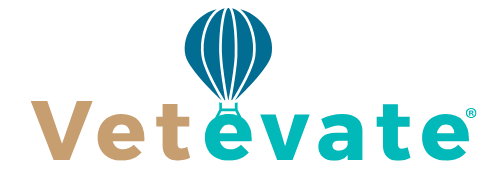The veterinary profession operates within a highly specialized and emotionally charged sector of healthcare. Unlike many general employment markets, veterinary jobs require a precise match of skill, compassion, experience, and cultural fit between job seekers and employers. The stakes are high not only in terms of patient care but also in the emotional investments of pet owners and veterinary teams alike. Consequently, the hiring process in this field cannot be approached with a one-size-fits-all strategy. Veterinary job boards must recognize these unique challenges and respond with platforms and features that are customized to meet the industry’s nuances.
Veterinary professionals, from licensed veterinarians to vet techs, receptionists, and specialists, face distinct career paths and challenges. These include varying licensure requirements, burnout, relocation concerns, and the emotional toll of clinical practice. Employers, such as private practices, animal hospitals, research institutions, and even corporate groups, also contend with staffing shortages, high turnover, and the need for reliable, mission-aligned personnel. A job board that doesn’t reflect these realities or fails to serve the specific expectations of its users quickly becomes irrelevant. To remain competitive and beneficial, job boards catering to the veterinary field must adopt a dual-lens approach that deeply understands and accommodates both sides of the hiring equation.
Meeting the Expectations of Veterinary Job Seekers
Job seekers in veterinary medicine are typically driven by more than just financial incentives. Passion for animal welfare, opportunities for work-life balance, access to continuing education, and supportive team dynamics often top their list of priorities. For job boards to truly serve these individuals, they must offer more than a simple list of open roles. Features such as detailed practice profiles, transparent salary ranges, team testimonials, and job alerts tailored by specialty or interest area help make the platform far more useful and appealing. These additions provide essential context that helps job seekers make informed decisions that will influence not just their career trajectory, but often their mental health and quality of life.
Moreover, veterinary job boards should prioritize mobile accessibility and intuitive search filters. With many professionals on the move, whether during shift breaks or between appointments, the ability to quickly and efficiently search for relevant roles from any device is vital. Offering saved searches, application tracking, and easy resume uploads further simplifies the process, reducing friction and improving the overall experience. Veterinary professionals are often overworked, and simplifying their job search respects both their time and their value.
Job boards can also support veterinary job seekers by offering career resources tailored specifically to this profession. Resume-writing tips that account for clinical experience, interview preparation guides that speak to behavioral and ethical questions in veterinary medicine, and articles discussing trends in the industry can all help job seekers feel empowered and well-informed. In doing so, job boards go beyond being a simple employment marketplace—they become trusted partners in career development.
Supporting the Recruitment Needs of Employers
Veterinary employers today face a mounting workforce shortage. According to recent studies, demand for veterinary services is rising while the supply of qualified professionals struggles to keep pace. This imbalance puts enormous pressure on employers to attract, retain, and nurture the right talent. A job board that understands this reality must provide tools that make recruiting efficient, targeted, and impactful. Employers are not simply looking to fill roles—they are seeking people who will integrate into their teams, uphold their values, and ideally stay for the long term.
Effective veterinary job boards should allow employers to post richly detailed job listings that go beyond the basics. Practices should be encouraged to showcase their culture, work environment, mentorship opportunities, and community involvement. High-quality images, staff bios, and practice philosophies can paint a much clearer picture than a text-only job listing. When a job board facilitates this depth of engagement, it helps employers attract candidates who resonate with their mission and values, increasing the likelihood of a strong and lasting hire.
Additionally, analytics tools can be extremely helpful for employers. Knowing how many people viewed a listing, where applicants are coming from, and how listings compare in performance to others can help refine recruitment strategies. The ability to manage applications within the platform, screen candidates, and communicate with them directly reduces administrative burden and streamlines the entire hiring process. For practices that may not have dedicated HR personnel, these features can make all the difference.
Veterinary job boards should also offer flexible pricing and posting plans. Smaller practices might not have the recruitment budgets of larger corporate-owned hospitals, and offering scalable options ensures equity in access to quality candidates. By supporting both small and large employers with tailored solutions, job boards can contribute to a healthier, more balanced job market in the veterinary field.
Creating a Mutually Beneficial Ecosystem
At their best, veterinary job boards act as ecosystems where professionals and employers thrive together. This doesn’t happen by accident; it requires a proactive commitment to listening, adapting, and innovating based on user feedback. Gathering insights from both job seekers and employers through surveys, interviews, and analytics is essential to continuous improvement. Features that once worked well might become outdated, and user expectations evolve quickly in a digitally driven world.
Transparency and trust play a key role in the success of any job board. When job seekers know that listings are vetted, legitimate, and up to date, they are more likely to engage with confidence. Likewise, employers must feel that their investment in job postings will yield qualified, interested applicants. Clear communication, responsive customer support, and community-building efforts can foster this trust and lead to long-term loyalty from both groups.
Moreover, the best veterinary job boards are those that contribute to the larger goals of the profession. By sharing news, supporting wellness initiatives, highlighting DEI efforts, and amplifying voices from across the industry, these platforms can influence not just hiring outcomes, but also the overall health of the veterinary workforce. When a job board is truly attuned to the people it serves, it becomes more than just a website—it becomes an integral part of the veterinary community.
Final Thoughts
The success of a veterinary job board hinges on its responsiveness to the real, evolving needs of both job seekers and employers. It must respect the emotional, physical, and professional realities of veterinary professionals while empowering employers to attract and retain talent in a highly competitive market.
Through thoughtful design, targeted features, and an ongoing commitment to value creation, a job board can rise above being just another listing platform. It can become a vital conduit for connection, growth, and long-term success in the veterinary field. As the profession continues to change and grow, job boards must be equally agile and empathetic, always keeping the well-being of both animals and people at the heart of their mission.




